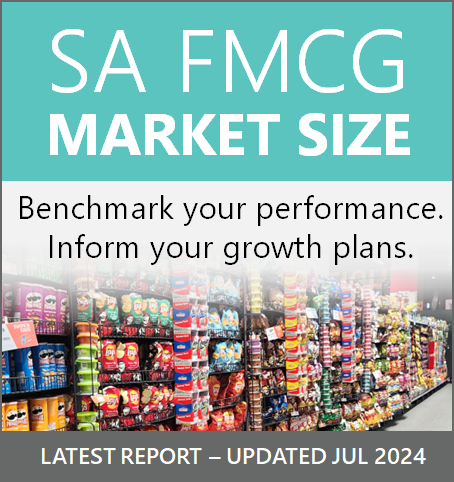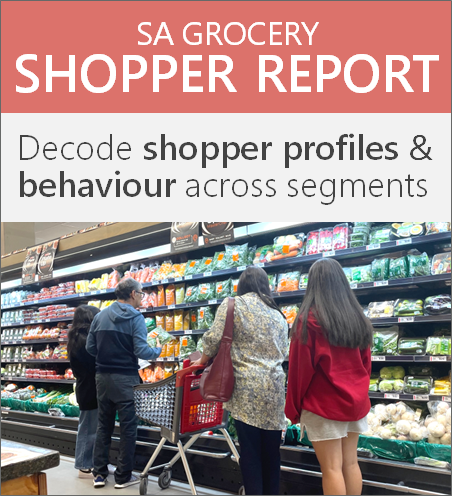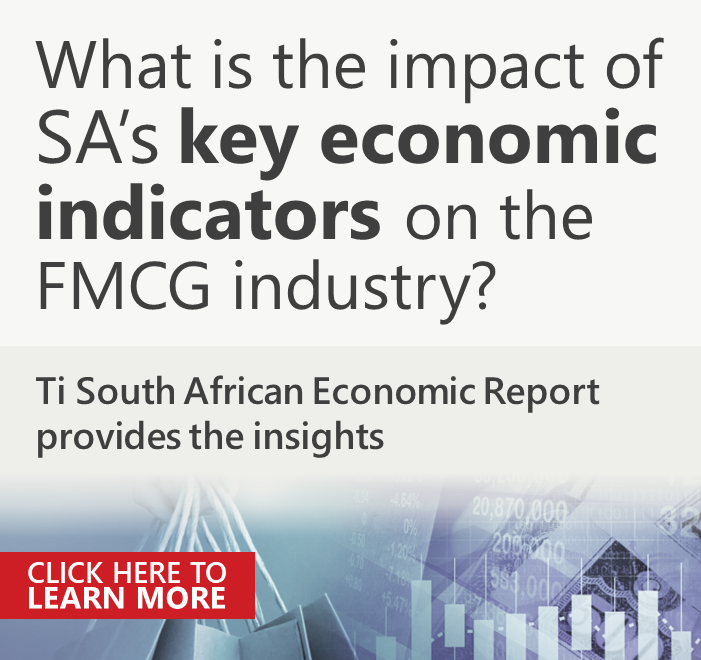
THIS ISSUE: 28 May - 03 Jun
Big news down below about the burgeoning cannabis industry, which has the potential to transform the global economy and if responsibly and humanely regulated could lift millions of small producers out of poverty. Also, some illuminating interims from SPAR, a bold and timely move from Woolies, and the Baby wars. Enjoy the read.
YOUR NUMBERS THIS WEEK
RETAILERS AND WHOLESALERS
-
SPAR Green shoots
A handsome set of numbers from SPAR, who report a +7.5% increase in wholesale turnover to over R64bn for the six months through March, with operating profit up +28% to R1.7bn. This was due in large part to strong performances in Ireland, with BWG growing turnover +13.3% and Switzerland at +21.6% both in rands; growth back home reached only +3.1%, with grocery sales almost flat at +0.8% and TOPS, typically a strong performer, losing 72 trading days over prohibition, with sales declining -7.8% YoY as a result. On the upside, Build it, benefiting from the lockdown DIY spree, grew a remarkable +26.2%. Completely shooting the lights out, however, was SPAR’s Polish business, which grew +32.2% in rand terms despite the closure of its locations in malls due to local lockdown, delivering a reduced operating loss. SPAR’s network in Ireland now comprises 1,392 stores, Poland has 230, while the total in Switzerland is 388 after the recent acquisition of a chain of forecourt convenience stores. For more on those numbers, have a look at our results summary here.
Comment: SPAR’s strategy of overseas acquisitions used to look like a hedge. Now it’s a mighty green forest.
-
-
Woolworths The realm of the senses
Welcome to the WCellar concept store in Woolworths’ Bryanston Food Market store. Bask in the buttery light as it gleams off the rows of carefully curated bottles. Thrill to the bold industrial elements in juxtaposition with the mellow blonde wood panelling and shelving, and the soothing touches of artfully placed greenery. Here, in addition to a collection of fine selected South African and international wines, you’ll find local wine collabs exclusively bottled for Woolies, and a collation of beers, craft beers, ciders and spirits approved by the Dapper One, and an in-house sommelier will help you with optimal pairings for the meals you will no doubt make from ingredients selected carefully in the adjoining Food store. The launch has drawn approval of pundits, who see it as further evidence that Woolies is definitively on the comeback trail after its drubbing Down Under, as well as a timely complement to the retailer’s already exceptional food offering.
Comment: If this is what new boy Roy Bagattini is doing with alimentation together with Zylands and her team, we can’t wait to see what happens when he really gets going on apparel.
-
-
Clicks and Dis-Chem Baby steps
The race is on between Clicks and Dis-Chem for market share in the baby category. Currently Clicks claims ownership of 19.6% share of this erm, growing market, and Dis-Chem, at 9.5%, is playing catch-up, with the acquisition of Baby City in January, and the addition of 33 baby specialist stores to the Dis-Chem Group’s store network. Undeterred, Clicks has fired back with the launch of its first Clicks Baby store in KZN’s Gateway mall in May. The concept store features breastfeeding and nappy changing spaces, click and collect online purchases, changing rooms for maternity wear, gift wrapping services, and on-floor advisors trained by brand experts – a great opportunity for brands to compete with the growing share of private label, that has cracked the milestone of 30% participation in Clicks front shop health and beauty by their most recent half year. Game had earlier stated their intention to claim back baby as an ownership category, but their latest strategy does not mention this, leaving Dis-Chem and Clicks to duke it out in the sandpit, building out their respective offerings to young families.
Comment: Truly contested space is hard to come by in South Africa’s consolidated retail environment. And here’s one where newcomer Dis-Chem appears to enjoy a structural advantage.
-
-
International Retailers Whoosh, Zoom, Chop Chop!
Taking a leaf out of Checkers’ book this week is Tesco, which is trialling its Whoosh delivery service to get groceries to online shoppers within an hour of ordering. Rival Sainsbury’s already runs its own such service, called Chop Chop, while other rival Waitrose recently did away with its unoriginally-monikered service Zoom, preferring to let third party Deliveroo take care of business. Over in the US, the first early tremors of what might be a shakeup of landscape-altering proportions: a spokesperson of the Poor People’s Campaign has addressed Walmart shareholders about worker representation on the board. Walmart have let it be known that third-party advisory councils are shaping its thinking in areas including its human rights statement.
Comment: Values that were once anathema to the profit motive are now being mainstreamed at every level in business. Who knows where it all might end?
MANUFACTURERS AND SERVICE PROVIDERS
-
Tiger Brands Businesses of a different stripe
Tiger Brands have announced the creation of a R100m venture capital fund for smaller food and beverage players seeking to get in on the action. The fund will give Tiger Brands early access to innovations and opportunities, providing a pipeline to fuel future growth, and where pertinent allowing the business to enter new product categories. What exactly is Tiger looking for? Its primary focus is on brands and companies dealing with intellectual property within the food and beverage sector, its secondary focus will be on capability and technology opportunities across the value chain. “We are open to all start-up stages from nascent ideas all the way through to viable products looking to scale,” says chief marketing officer Becky Opdyke. Tiger notes that relevant opportunities for innovation will include emerging and existing consumer trends such as Health and Nutrition, Plant-Based foods, Convenience and Snackification.
Comment: A refreshingly transactional take on innovation and business growth. Go, entrepreneurs!
-
-
Cannabis High time
The government has a plan for industrialising and commercialising cannabis to boost the economy, focusing on both hemp and marijuana, with the key objectives of setting up an inclusive, sustainable and globally competitive cannabis industry in South Africa and increasing the capacity of South African farmers to produce both marijuana and hemp. The plan responds to the need, identified by the cabinet, for a national strategy that will improve economic growth, create jobs and alleviate poverty. Agriculture, Land Reform and Rural Development Minister Thoko Didiza has let it be known that under this draft Master Plan, the government will start issuing and monitoring permits for hemp production in October this year. Cape investment authority Wesgro has taken the lead in developing the broader Cape Town area as the foremost cannabis hub in the country by facilitating R170m in investment.
Comment: Regions like the Eastern Cape and KZN should take care that this massive opportunity for economic upliftment does not pass them by. And speaking of opportunities, read our thought leadership article on how cannabis is increasingly breaking ground in the wellness and beauty industry here.
TRADE ENVIRONMENT
-
Food Lean years
Last week the Beloved Country marked World Hunger Day. The World Health Organization has classified South Africa’s hunger problem as a crisis, one that has been exacerbated by the COVID-19 pandemic. Interim Operation Hunger CEO Sandy Bukula says that since the start of the pandemic, the organisation has received an increase in calls from people in the informal economy such as construction workers, gardeners, waiters and domestic workers, who do not have job security, and who have fallen on hard times nutritionally speaking. Rise Against Hunger CEO Brian Nell is particularly concerned by the high degree of stunting, with one in four children born developmentally stunted, an unacceptable situation in an advanced economy like ours. Right now, over a third of South Africans are unemployed, and 60% of those with jobs earn minimum wage. One point of light is that according to the Affordability Index published by the Pietermaritzburg Economic Justice and Dignity Group (PMBEJD), the average household food basket cost R61.82 less in May.
Comment: Just some snippets from the front lines. But hunger is very much in our wheelhouse as an industry, and we have both the means and the ideas to tackle it.
Sign up to receive the latest SA and international FMCG news weekly.
Tatler Archive
“Hunger is not an issue of charity. It is an issue of justice.”








1.png)
